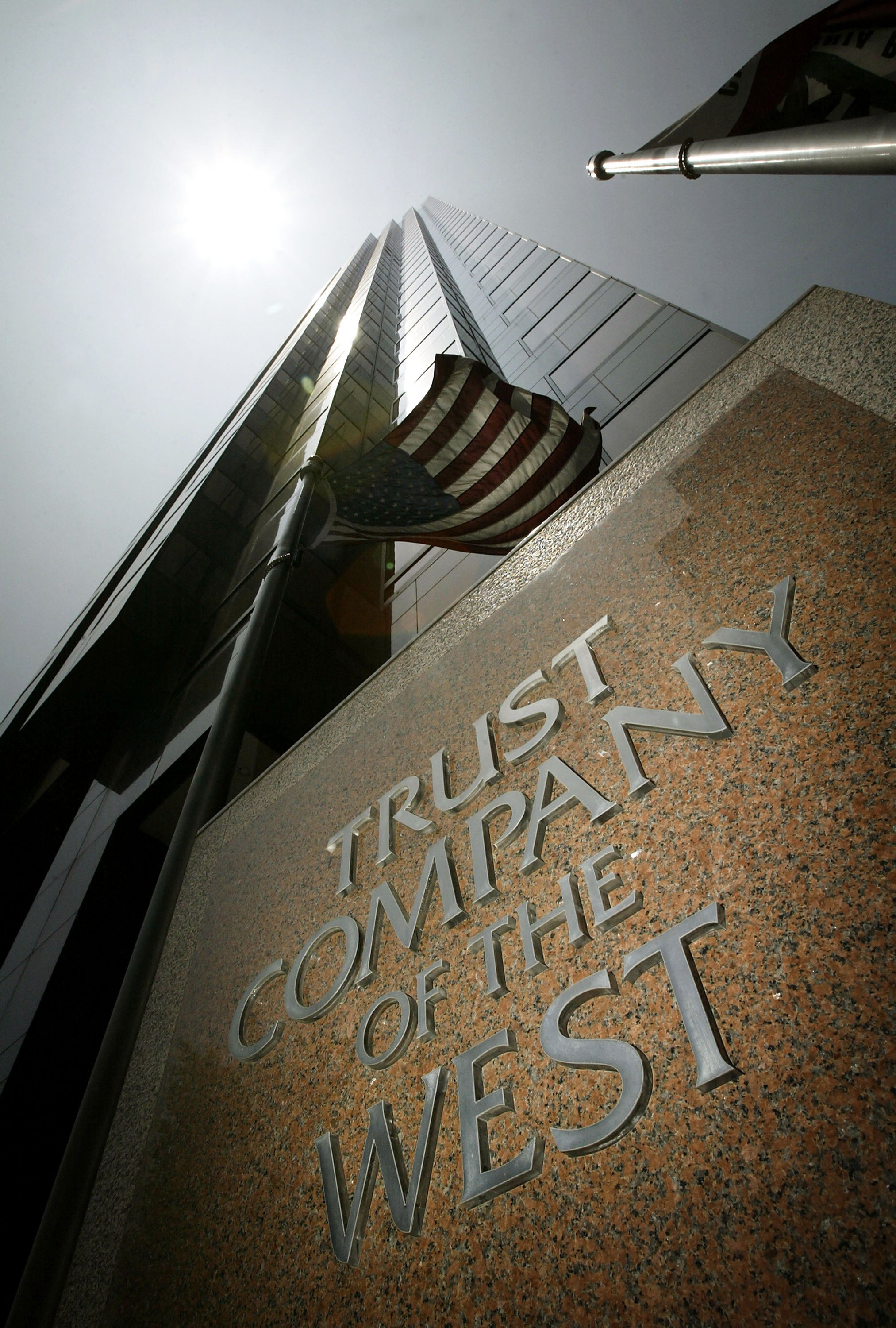
A high-flying investment banker who was fired in one of Wall Street’s first major #MeToo cases claims his former firm still owes him a $6.5m bonus and alleges the company contacted his late wife’s siblings and told them he had cheated on their sister while she was dying of cancer.
Jess Ravich, a former managing director at global asset management firm TCW, which has some $200bn under management, was fired in 2019 over a string of sexual harassment accusations. Sara Tirschwell, an experienced fund manager and onetime New York City mayoral candidate, alleged Ravich coerced her into sex at his Trump International condo in exchange for professional advancement, then sunk her career when she stopped giving in to his demands.
But in a newly unsealed lawsuit, Ravich insists he is innocent of the allegations against him.
Ravich’s suit says an internal investigation cleared him of any wrongdoing, and argues he was the fall guy for his boss, TCW’s president, who knew The New York Times was about to publish a damning article blaming him for a “frat-like” atmosphere that turned a blind eye to sexual misconduct. Rather than be publicly dragged through the mud, TCW higher-ups desperately wanted to shift the blame entirely onto Ravich, according to the lawsuit.
The company’s “attacks on Ravich were merciless and personal,” the suit states. “... The culmination of [the] bare-knuckle strategy to destroy Ravich’s reputation was the Company’s contrived termination of Ravich’s employment, supposedly for cause, on June 10, 2019.” For its part, TCW in July sued Ravich, contending he was let go because his “contemptible cocktail of arrogance, misogyny, and wealth,” and “pervasive” misconduct, cost the firm millions.
“While at TCW, Ravich secretly had sex with at least two of his subordinates, lied to his colleagues and the board, lied to internal and outside investigators, lied under oath, bribed another TCW employee to lie under oath, misused company funds to maintain his illicit sexual relationships, embroiled TCW in a multi-million-dollar lawsuit arising from his sexual misconduct,” the company said in its suit. (TCW says Ravich also pressured his longtime assistant into a decade-long affair and then tried to buy her silence with a $750,000 bribe.)
A source close to the case who asked not to be named due to professional considerations described Ravich’s lawsuit to The Independent as entirely without merit. A lawyer for Tirschwell, who is not named as a defendant in Ravich’s suit, did not return messages seeking comment. A TCW spokesman declined to comment.

Ravich joined TCW in early 2013 and was soon given responsibility for its Alternative Products and Direct Lending businesses, according to the suit.
His “exemplary” performance was richly rewarded, the suit continues, saying a big payday for a successfully completed deal was pending when Tirschwell four years later “leveled false and defamatory allegations of gender discrimination” against Ravich upon finding out her contract would not be renewed.
In Tirschwell’s own 2018 lawsuit against TCW and Ravich, which was settled last year, she described a 10-month period during which Ravich “arranged ‘breakfast meetings’ with Tirschwell, ostensibly to discuss business, which he instead exploited as opportunities to exert power and control” over her. The first time, in the spring of 2016, Ravich answered the door in a “white terry bathrobe,” which Tirschwell’s suit says “irritated” her. Still, she felt that if she didn’t give in to his advances, the fund Tirschwell was attempting to launch was destined to fail, and she “reluctantly acquiesced,” the lawsuit goes on.
This went on until early 2017 when Tirschwell became “[u]nable to tolerate Ravich’s sexual advances any further,” according to her suit. That December, as Ravich tried to squeeze Tirschwell out of TCW, she reported him to HR and was soon fired for what she said was a fabricated pretext of having committed compliance violations.
In his new lawsuit, Ravich says he had known Tirschwell since 1994 when she worked for him at another investment firm.
Tirschwell, a divorcee, and Ravich, whose wife passed away in March 2012, began a romantic relationship in August 2012, according to the suit, which says the two dated until November 2013. Ravich disclosed his history with Tirschwell before she was hired at TCW, and company officials considered it “immaterial,” the lawsuit states. However, it says Tirschwell fell short in attracting investor funds, and TCW officials decided in October 2017 that they would not be renewing her contract, which was due to expire in February 2018.
Ravich claims he fought for Tirschwell’s job, but that when he was overruled, he asked that he be allowed to inform Tirschwell about her impending termination so she would have enough time to secure other employment. Hours after Ravich gave Tirschwell the news, she reported him to TCW’s human resources department for sexual harassment. Nine days later, on December 14, 2017, Tirschwell was terminated.
Tirschwell quickly sued, and TCW hired an independent investigator who “vindicated Ravich,” claiming, according to Ravich’s lawsuit, that they had found “no evidence” to support Tirschwell’s accusations. Ravich says he was then promised a $6.5m bonus for 2018.

“This all changed in the summer of 2018, when [TCW’s president] learned that The New York Times was planning to write an article about Ms. Tirschwell’s case and was seeking to paint TCW under [his] leadership as a ‘toxic’ workplace,” Ravich’s lawsuit states.
Ravich, whose lawsuit describes him as a “loyal and successful employee,” says he was turned into a “scapegoat” for TCW’s failures. It claims TCW leaked damaging information to the Times, The Wall Street Journal, and Bloomberg, and stripped him of all responsibilities.
The company stopped paying for his legal defense against the Tirschwell lawsuit, according to Ravich, offered him a paltry severance payout, and when Ravich sued TCW for retaliation, a member of the TCW board “told Ravich… that, if he did not resign and settle the retaliation claim against Lippman, the company would issue a false statement that would embarrass Ravich in front of his four daughters.”
Then, in the fall of 2023, “TCW hired an investigator who contacted four of Ravich’s sisters-in-law and told them that Ravich was unfaithful to their deceased sister before she died,” Ravich’s new lawsuit states. “... TCW’s harassment campaign was intended to, and has, caused Ravich to suffer severe emotional and mental distress, resulting in the need for medical treatment.”
Further, the suit says that since TCW fired Ravich “for cause,” it refused to pay him a year’s worth of wages, severance, and the $6.5m bonus he had been promised. Ravich, on the other hand, says he is entitled to the money because the grounds for his termination were “manufacture[d],” “false,” and thus did not constitute cause under the terms of his employment agreement.
Ravich is now asking for a judge to force TCW to pay him his bonus, plus interest, and the rest of the past compensation he believes he is entitled to, as well as legal fees and actual and compensatory damages to be determined at trial.







